South Korea to levy 38% anti-dumping duties on Chinese steel products
The hot-rolled thick plate tariffs may escalate into a broader trade conflict between the two countries, analysts say
By Feb 20, 2025 (Gmt+09:00)
LG Chem to sell water filter business to Glenwood PE for $692 million


KT&G eyes overseas M&A after rejecting activist fund's offer


Kyobo Life poised to buy Japan’s SBI Group-owned savings bank


StockX in merger talks with Naver’s online reseller Kream


Meritz backs half of ex-manager’s $210 mn hedge fund


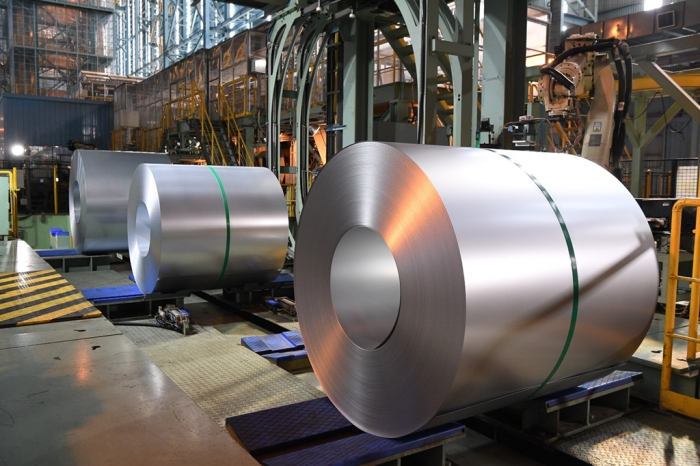
South Korea plans to impose up to 38% provisional anti-dumping duties on Chinese hot-rolled steel plates starting next month, judging that those products have undercut domestic steelmakers.
The proposed tariffs exceed industry expectations of up to 25% and reflect market concerns that protective barriers are necessary for Korea to safeguard its struggling steel industry, analysts said.
Seoul’s Ministry of Trade, Industry and Energy (MOTIE) held a Trade Commission meeting on Thursday and concluded that there is sufficient evidence pointing to dumping by Chinese steel exporters, resulting in substantial harm to Korean rivals.
The decision follows a complaint filed by Korea’s No. 2 steelmaker Hyundai Steel Co. in July 2024, which led to a four-month preliminary investigation starting in October.
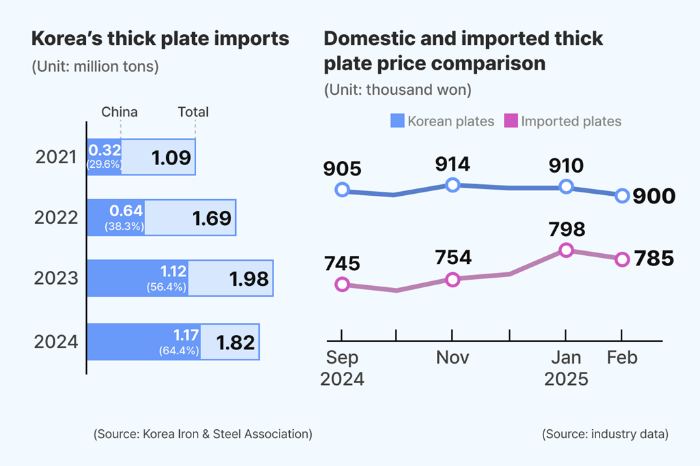
The commission said it plans to impose anti-dumping duties of between 27.91% and 38.02% on imported Chinese hot-rolled thick plates before launching a full investigation, which could take up to a year.
The provisional tariffs, set to be finalized within a month following a review by the Ministry of Economy and Finance, will take immediate effect upon confirmation.
“We will rigorously investigate unfair trade practices such as dumping and intellectual property violations to strengthen our trade defense mechanisms,” said a MOTIE official.
The commission also decided to impose 2.5% to 25.04% anti-dumping tariffs on OPP film, used in packaging materials, from China, Indonesia and Taiwan.
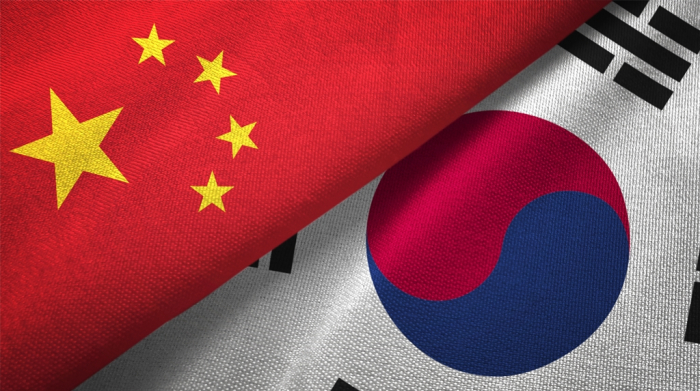
The latest moves come after Korea began imposing a 21.62% tariff on Chinese stainless steel imports in January.
CHINESE IMPORTS OUTCOMPETE KOREAN PRODUCTS
On Wednesday, the Korean government said it will soon launch an investigation into hot-rolled steel imports from China and Japan, alleging that their products are brought in and sold at prices 10-15% lower than Korean products.
Korean steelmakers have flagged that hot-rolled steel imports from China and Japan are damaging local businesses.
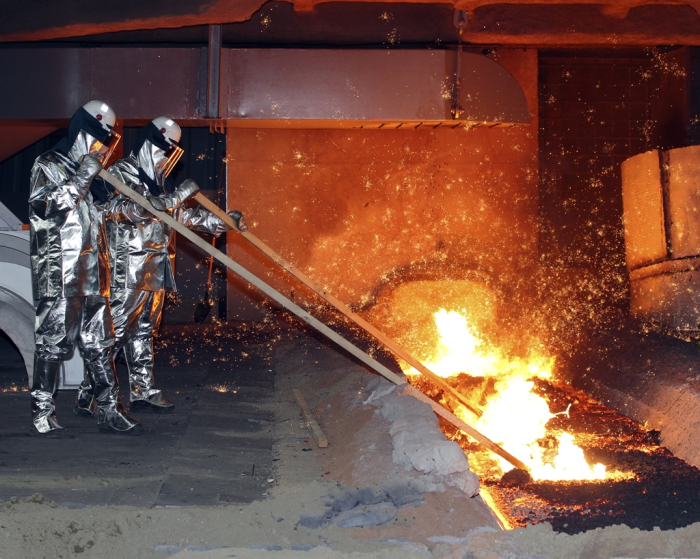
Last July, Hyundai Steel filed a petition with the government, requesting a state investigation into claims that Chinese and Japanese steelmakers – including Baowu Steel Group, Nippon Steel Corp., JFE Steel Corp. and Kobe Steel Ltd. – have been selling hot-rolled steel in Korea at dirt-cheap prices.
POSCO Holdings Inc., the parent of Korea’s top steelmaker POSCO, and Hyundai Steel are reeling from heavy inflows of steel products from China, also struggling to cope with oversupply caused by its slumping property sector.
Steel imports from China and Japan are mostly hot-rolled steel – the basic material for most other steel products including electrical steel sheets – and thick plates largely for shipbuilding.
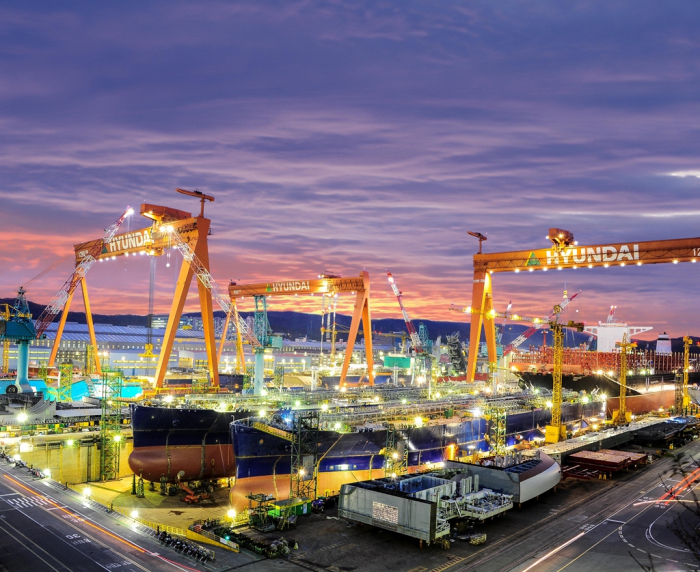
According to the Korea Iron & Steel Association, Chinese thick plate imports reached a record 1.17 million tons last year – more than tripling 320,000 tons in 2021.
Despite strong shipbuilding in Korea, however, sales of locally produced thick plates have declined. Local shipbuilding plate sales reached 3.23 million tons in 2024, down 4.7% from the previous year.
POSCO and Hyundai Steel produce 5.5 million tons and 2.6 million tons each of thick plates annually and sell more than half of their output to shipbuilders. Dongkuk Steel Mill Co. makes 1 million tons annually, with 30% going to shipbuilders.
ESCALATING TRADE TENSIONS
The global wave of protectionism, sparked by US President Donald Trump who vowed a 25% tariff on steel imports to his country, could escalate into a tariff dispute between Korea and China, heightening trade tensions.
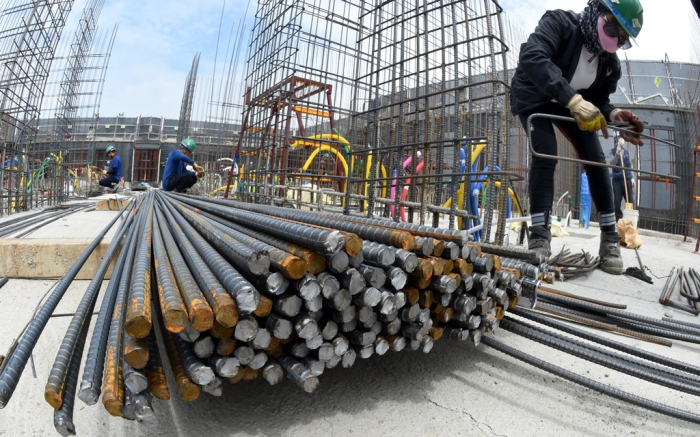
Analysts said China may retaliate by imposing restrictions on key Korean imports to China. If this happens, they said the trade conflict between Seoul and Beijing could escalate beyond steel into a broader trade dispute.
Japan’s steel industry association has also warned that Tokyo may consider raising trade barriers against Korean products if Seoul proceeds with anti-dumping tariffs.
While Korean steelmakers welcome the government’s anti-dumping tariff plans, shipbuilders are concerned about a possible rise in thick plate prices.
Korean shipbuilders have been increasing their use of cheaper Chinese products to stay competitive as hot-rolled steel plates account for some 20% of a vessel’s cost.
Write to In-Soo Nam at isnam@hankyung.com
Jennifer Nicholson-Breen edited this article.
-
 SteelKorea to probe Chinese, Japanese steel imports over anti-dumping claims
SteelKorea to probe Chinese, Japanese steel imports over anti-dumping claimsFeb 19, 2025 (Gmt+09:00)
1 Min read -
 SteelHyundai Steel sells over 1 mn tons of auto steel to non-captive customers
SteelHyundai Steel sells over 1 mn tons of auto steel to non-captive customersJan 21, 2025 (Gmt+09:00)
2 Min read -

-
 Corporate restructuringKorean steel giant POSCO to sell Chinese JV PZSS amid US-China trade war
Corporate restructuringKorean steel giant POSCO to sell Chinese JV PZSS amid US-China trade warNov 08, 2024 (Gmt+09:00)
4 Min read -
 Mergers & AcquisitionsHD Hyundai seeks to acquire Leeyoung to prepare for shipbuilding boom
Mergers & AcquisitionsHD Hyundai seeks to acquire Leeyoung to prepare for shipbuilding boomSep 30, 2024 (Gmt+09:00)
3 Min read -
 Shipping & ShipbuildingKorean shipbuilding shares surge on supercycle hope, Trump Trade
Shipping & ShipbuildingKorean shipbuilding shares surge on supercycle hope, Trump TradeJul 28, 2024 (Gmt+09:00)
3 Min read -
 SteelSouth Korean steelmakers run plants only at night as demand plummets
SteelSouth Korean steelmakers run plants only at night as demand plummetsJun 05, 2024 (Gmt+09:00)
3 Min read -
 SteelKorean steelmakers mull anti-dumping suit vs Chinese, Japanese firms
SteelKorean steelmakers mull anti-dumping suit vs Chinese, Japanese firmsJan 17, 2024 (Gmt+09:00)
3 Min read


